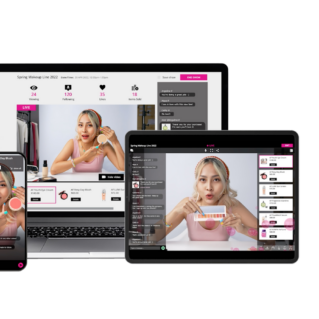“Should I outsource my fulfillment?” As a direct seller, you might be reading this and asking this very question.
Perhaps it’s a decision that kept you up at night several years ago as you spent countless hours crunching numbers and sifting through RFPs. Or, maybe you’re currently undergoing an RFP process and are having a tough time choosing the company you feel is the right match for your business.
Whatever the case may be, outsourcing the fulfillment function is a necessary means in helping you focus on running the elements of your business that you know best; whether it be product development, sourcing, creative, media and financials. And depending on where you are in the business development stage, the nuances of these elements can vary.
Let’s take a look at each of these stages:
A startup company has a lot of balls to juggle. Managing costs is one of the greatest concerns. You might be tempted to reduce costs with a Do-It-Yourself approach to fulfillment. However, keep in mind that a DIY approach will divert your attention from more critical areas of the business, adds little value to influence your success or failure and in short, is a huge drain on your time and resources. Additionally, as a startup, you have the most to gain from a third party’s scale and buying power in areas such as supplies and shipping costs.
An established direct-seller knows firsthand the life of a startup. They’ve been there, done that. Many have learned not to carry the burden of fixed infrastructure required for a fulfillment operation. It doesn’t matter if the space is leased or owned, the fixed-cost is punitive. For direct sellers who already have fixed-costs (i.e. a building with a warehouse in the back), the objective should be to eliminate that cost via sale or sub-lease.
Even the “Big Guys” can improve profitability and reduce risk through outsourcing fulfillment. While there may be significant volume and buying power, and on the surface it appears that they handle fulfillment profitably, the achilles heel relates to the cyclicality of sales. This is a result of both product seasonality and campaign scheduling. Unit costs may be low when a campaign is active, but during periods of reduced or no activity, fixed costs keep adding up (we’ll dive into this a bit more below). By outsourcing, the fulfillment function is a nearly 100% variable cost.
The fact is, at any size or stage in the game, businesses can always benefit by outsourcing. Take note of these five factors when considering partnering with a fulfillment provider:
- Quantifiable Cost– Outsourced fulfillment provides a mostly variable cost component to your campaign. If you sell, you ship. If you ship, you incur known and predictable costs. As you’re building campaign financials, outsourcing allows for a tighter budget. If you predict activity, the fulfillment cost can be projected accurately. Compare this to doing fulfillment on your own. Try to think of all the cost factors you will be budgeting for: warehouse space, taxes, utilities and labor. It is very likely you won’t anticipate every single factor that needs to be included. Even if you can, you don’t know how to predict the variability of each over time; which makes your entire financial plan risky. With outsourcing, you will largely pre-negotiate costs on a transactional basis.
- Expertise – When hiring a third-party logistics provider these days, experience matters. Fulfillment is a lot more complicated than most people think. To do it accurately and effectively, you need specialized systems, labor, management and expertise. Even established direct sellers with their own distribution centers fulfilling B2B orders should think twice before trying to utilize these resources for consumer-direct fulfillment. They’re very different and the landscape is very dynamic. Carriers and freight programs are ever-changing, technology is evolving and consumer expectations are becoming more demanding. An experienced fulfillment provider is on top of these changes and can shift you into more advantageous programs quickly. Outsourced fulfillment centers often have years of experience across many product lines, campaigns and industries. All this accumulated knowledge is applied for the benefit of each client. Finally, every successful fulfillment provider has mastered labor management. Would you like to be an expert in this area? Or would you rather create, market and sell your products?
- Lower Costs – Beyond the discussion of fixed vs. variable costs, outsourcing your fulfillment will enable you to leverage the scale of your provider. Fulfillment providers ship a whole lot more than you do. Therefore, their shipping rates are lower and give you a competitive advantage. In many cases, the savings in this category will pay for the services. The same can be said for supplies and other consumables. Ride the coattails of your provider.
- Location – The location of your fulfillment center plays a major role in reducing transit time (and saving on your shipping costs in the process!). If you handle your own fulfillment, you are stuck with your own geographical location. Most direct sellers are reaching an audience nationwide, or even global. Choosing a provider with strategic facilities will help greatly. For example, by incorporating just two facilities in optimal locations you can achieve a 2-day ground transit to over 90% of U.S. households. Those without enough distribution centers (or with sub-optimally positioned DC’s) will be burdened with the costs of express and priority shipping if they are to meet the demands of today’s consumer.
- Depth-of-Service Options – Think about what services are important to you, both today and in the future. Many fulfillment providers offer the basics: warehousing and shipping. But others go way beyond and offer far more value. These complementary services can save you from having to manage these processes in-house or through several additional vendors, and include customer care, kitting and assembly, reverse logistics, product refurbishment, order management technology, data analytics, subscription management, marketplace integration, payment processing and more. You may have needs for several of these functions, and with the right provider you can create a package that is provided by one supplier, simplifying your management efforts.
In summary, think carefully about how you handle fulfillment today and give outsourcing serious consideration. And as you do your research, be sure to take the time to explore each provider’s value proposition. Your selection may yield an invaluable strategic partner that will pay dividends long into the future.
 Ayal Latz is a lifelong entrepreneur and is the Founder and President of a2b Fulfillment, a progressive 3PL specializing in Order Fulfillment, Customer Care and Value-Added Business Services.
Ayal Latz is a lifelong entrepreneur and is the Founder and President of a2b Fulfillment, a progressive 3PL specializing in Order Fulfillment, Customer Care and Value-Added Business Services.


